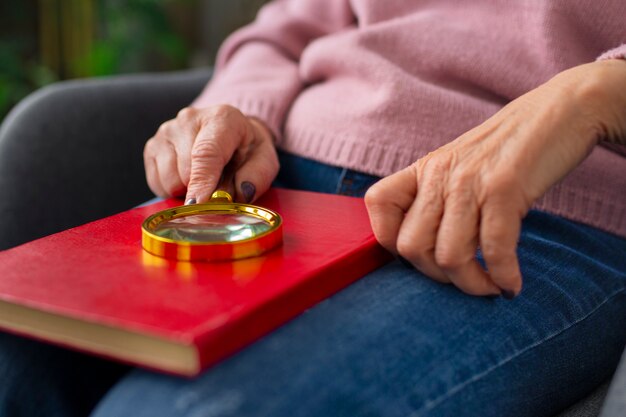
What is menopause?
Menopause is when a woman permanently stops having menstrual periods. This can happen naturally or be induced. Natural menopause is when a woman hasn’t had a period for a full year. Induced menopause occurs when both ovaries are removed surgically or due to chemotherapy, leading to a sudden drop in hormone levels and potentially more severe symptoms. The average age for natural menopause in Western countries is around 51, but it can occur earlier, known as premature menopause, affecting about 1% of women under 40.
What causes it?
Menopause is mainly caused by a decrease in estrogen and other hormonal changes. Women are born with all the follicles they will ever have, typically between 1 to 2 million, and these numbers gradually decrease over time. By the time menopause arrives, only a few hundred to a few thousand follicles remain. This drop in follicles prompts the body to produce more hormones like Follicle Stimulating Hormone (FSH) to stimulate the ovaries, which can lead to the symptoms of perimenopause.
What is perimenopause?
Perimenopause is the transitional phase leading up to menopause, marked by fluctuating hormone levels. During this time, women may experience heavier or irregular periods, hot flashes, vaginal dryness, and trouble sleeping. These symptoms can cause irritability and even depression.
Symptoms of menopause & perimenopause
Menopause symptoms can vary widely in type and severity. Hot flashes are the most commonly talked about symptom. They can range from a mild warm feeling to intense heat causing sweating and discomfort. Hot flashes often affect the head, neck, and chest, sometimes accompanied by heart palpitations. They can be more frequent at night, disrupting sleep quality. The duration and intensity of hot flashes differ from woman to woman and can persist for years. Other symptoms include vaginal dryness, insomnia, and urinary incontinence with sneezing or coughing, which are also part of the aging process.
What can I do to alleviate the symptoms?
There are many ways to manage menopause symptoms, and it’s important to consult with a healthcare provider to confirm that menopause is the cause. Lifestyle changes can have a significant impact, such as reducing caffeine, alcohol, and spicy foods intake, exercising regularly, managing stress, and wearing layers to adjust during hot flashes.
Some over-the-counter dietary supplements might help, but it’s crucial to discuss these with a healthcare provider. Evening Primrose Oil, for example, may relieve hot flashes due to its fatty acid content. Black Cohosh extract is also used for hot flashes but should be avoided by those with liver issues. Flaxseed and flaxseed oil may treat mild symptoms. Phytoestrogen extracts, such as soy and red clover, have shown minimal effectiveness in relieving menopausal symptoms, and should be avoided by women with estrogen-positive breast or uterine cancer unless advised by their healthcare provider. Additionally, Vitamin D and Calcium are important for preventing osteoporosis.
Every woman will experience menopause differently. The key is to talk to your healthcare provider as soon as symptoms start or periods become irregular to develop a manageable action plan. Don’t go through it alone; proper treatment can prevent additional issues.